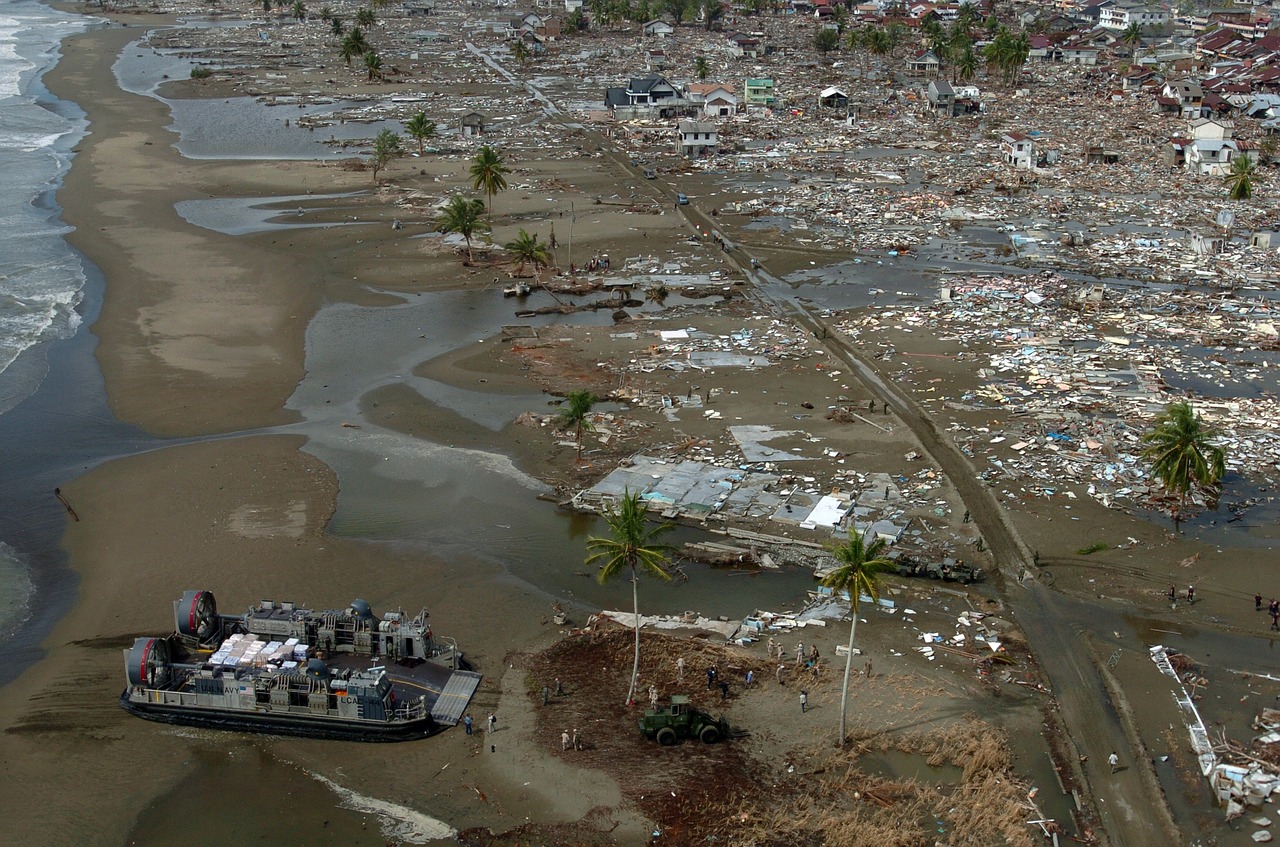Can you remember the day that changed your life? I sure can.
Dec. 26th, 2004. I can even narrow it down to just after 10:30 in the morning.
A dream vacation one minute, a nightmare the next. For lack of a better word, it was surreal. What had been a place of tranquility was transformed into pandemonium after the tsunami came ashore.
Despite being only about 50 yards from the shore, my wife and I were oblivious to what was going on outside. The only sign we had of the impending danger headed our way was when the electricity cut out.
Even after I saw the wave, I wasn’t really concerned as my bungalow was about 6 feet off the ground. But when the water came through the floorboards, I admit I started getting nervous.
I have replayed the next two minutes in my mind over and over again. I can still feel the bungalow shaking. I can hear the sound of the metal contorting under the pressure of the water. I can still see the water coming towards me just before our bungalow collapsed. I can still remember the taste of the sandy water in my mouth.
Put another way, I felt fear, in its purest form.
Yet somehow, against all odds, both my wife and I survived. The high ceiling, our elevated position and a whole lot of good luck allowed us to escape with just a few cuts.
I learned three important life lessons that day.
Lesson 1: People react differently
After escaping from our bungalow we were taken to an emergency center where we spent the rest of the day helping others.
The incredible fear that permeated the atmosphere affected everyone differently. Regardless of their nationality, their sex, their religious beliefs or their background, people, reacted in one of three ways. Some did everything they could to help other people. Other people became extremely selfish and naturally, some were simply in a state of shock unable to fathom just what had taken place.
Until you face such a situation, you won’t really know just how you’ll react. The best advice I can give you is to keep your mind focused on one thing. The minute you let your mind wander it will start asking all sorts of questions, some of which can be detrimental.
I could see quite quickly the danger that existed with the sheer number of wounded that were brought in. So rather than sit around and think about the enormity of what had just happened, I got to work. I sorted people out into four different groups; the uninjured, the children without parents, the injured who didn’t need immediate attention and those who did. It helped give people a sense of comfort knowing that everyone was being attended to. Organization breeds confidence, and with confidence, hope. Which brings me to lesson # 2.
Lesson 2: Hope is everything
People take action based on what they believe is the right thing to do. If they feel the situation is hopeless, they won’t take action. We only take action when we feel our actions will have a positive effect on the outcome.
Seconds meant the difference between life and death. Even when the supports of our bungalow snapped and I was plunged into the water, I had to believe there was a chance. With only 30 seconds of air left, I made my peace with my maker and did what I could to stay alive.
I had to believe that everything would be alright, even in the face of imminent death, because anything less would mean giving up. I wasn’t ready to go just yet so I took action.
Whether it’s a life and death situation or in the boardroom, you have to believe things will work out and then act accordingly.
Lesson 3: Do what you can
We are emotional animals. They panic when faced with overwhelming danger. This is as true as it was that day as it’s true in business. Crises happen seemingly every day at the office. What’s important is not to overreact to them. Remaining calm is literally the best thing you can do.
Zig Ziglar put it this way, “When you respond to life, that’s positive; when you react to life, that’s negative.” He goes on to talk about when you go to see the doctor, and how if you’re “reacting to the medicine” that’s not a good thing.
Take a deep breath before reacting to anything. I’ve read that many anger management experts suggest counting to ten before saying anything out of anger. It’s amazing just how many times we actually misunderstood the person talking and those ten seconds make all the difference.


